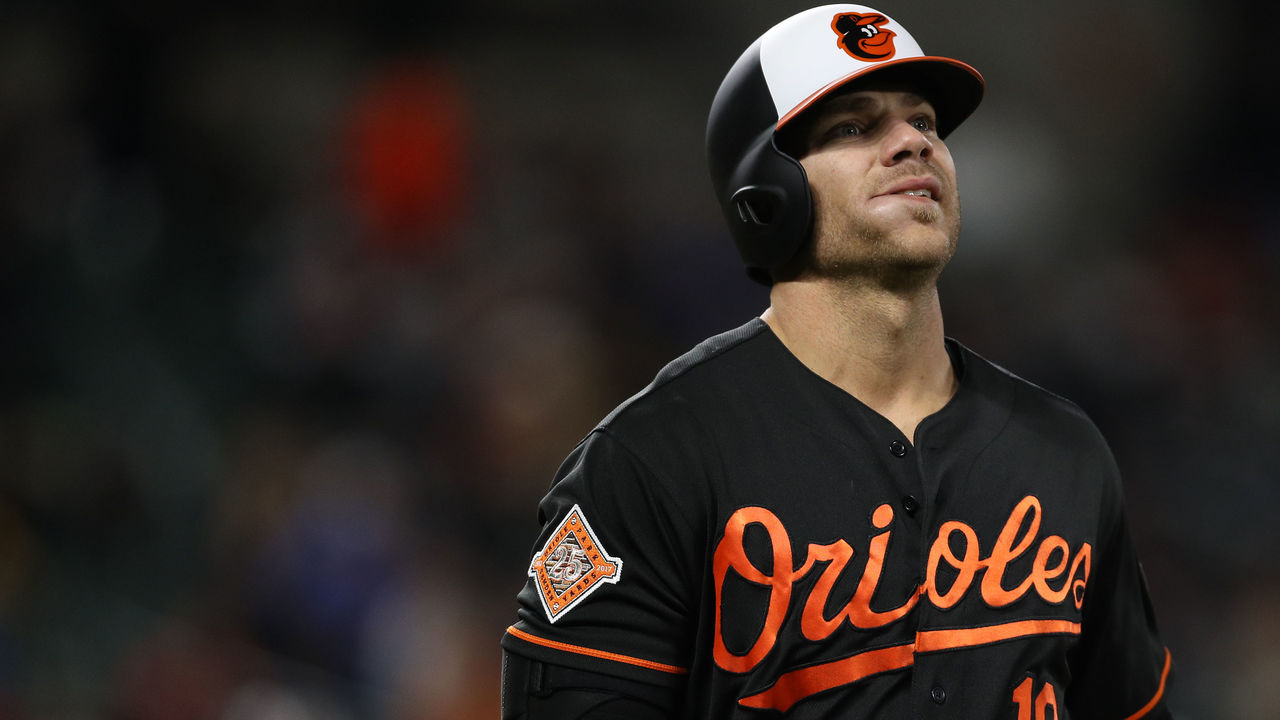MLB front offices are getting smarter, and that's a problem for Boras
Major League Baseball front offices are playing a game of chicken with Scott Boras.
It's been a painfully slow winter, and Boras, who currently controls the market, is one of the key contributors. The super agent represents a number of the top players that remain available, including Jake Arrieta, J.D. Martinez, Mike Moustakas, Greg Holland, and Eric Hosmer. Only one of his 19 free-agent clients has signed: Wade Davis, who took a three-year, $52-million deal with the Colorado Rockies.
To date, 53 players have agreed to major-league deals. Only 35 of those players received multi-year contracts. Carlos Santana received the largest payout of any player so far - a $60-million commitment over three years from the Phillies. Although the 31-year-old was one of the better options on the market, Philadelphia opted to pay a higher average annual value in order to avoid a longer term.
With so many top-tier free agents still without teams less than a month before spring training opens, front offices appear less willing to give long-term deals to aging players - the type of deals that Boras is seeking for his clients.
Yes, major-league executives appear to be smartening up.
Baseball has became a young man's game over the past half decade. While Boras argues that six- and seven-year deals have worked - and it's his job to do so - it doesn't take much effort to look around the league and spot several examples to the contrary.
Only two offseasons ago, Jason Heyward, Justin Upton, Johnny Cueto, Zack Greinke, David Price, and Chris Davis received contracts of at least six seasons. None of those deals has been an overwhelming success. The Diamondbacks have reportedly tried to shop Greinke, who's now 34, in each of the last two seasons. Price, now 32, was shelled in the postseason during his first year in Boston, and was limited to just 74 2/3 innings in 2017 due to an elbow injury. Davis, a Boras client, even held out until late January before the Orioles re-signed the slugger to a seven-year, $161-million deal. He's been worth just 3 WAR since, and Baltimore now enters something of a rebuild with five years left on the 31-year-old's pricey contract.
Poll the executives responsible for those deals and it's likely that almost none of them would agree to those contracts if they had a do-over.

Forget the cries of collusion from agents and players across the league. Instead, maybe the "nerds" in front offices have brought some common sense into the equation.
Boras, though, wants history to keep repeating itself.
"The players I represent are not seeking anything from owners that the owners haven't done in the past," Boras told Jon Heyman of FanRag Sports.
To an extent, Boras is right. The players deserve to make the money, rather than see it line the owners' pockets. But the arrangement has to make economic sense for both groups, and just because teams operated a certain way before doesn't make it wise for them to continue.
After all, it's been proven time and again that paying big for players who are 30 and older can cripple a franchise. Ryan Howard followed up six straight 30-plus-homer seasons by falling apart at age 32. Prince Fielder was one of the most durable players in the majors in his 20s; following his 30th birthday, he played just 289 games over three seasons and was forced to retire at 32 for health reasons. Future Hall of Famer Albert Pujols was still one of the best players in the majors when he signed a 10-year, $210-million deal at 32, but in six seasons since, he's been an All-Star just once.
Last winter's offseason looks to be a sign of things to come, as no player received more than a five-year deal. Boras, however, is sticking to what has made him successful. He will not be bullied - which is arguably why so many players want his representation.
Boras started the winter by reportedly seeking a seven-year, $210-million contract for Martinez. Yes, the "King Kong of Slug" is among the elite hitters in baseball. He's also one of the league's worst defensive outfielders, he's only once managed to play more than 130 games in a season, and he's entering his age-30 campaign.
It was reported that the Boston Red Sox offered Martinez a five-year, $125-million deal - certainly fair value - but the sides have yet to reach an agreement. Boras wants more for his client, and that's his right, but his eagerness to make demands based on precedent rather than what makes sense has contributed to the current free-agency logjam.
"We're hopeful to make a deal," Red Sox chairman Tom Werner said earlier this week. "But as I've said, it takes two people to make that deal."
Long-term contracts obviously aren't gone for good: Manny Machado and Bryce Harper are going to get paid next winter at 26. But that's when front offices should - and are willing to - sign players to long-term contracts. For quite a while, we've had data showing that players fall off as they get into their 30s. It's worth watching how front offices manage future paydays for veterans; even if he manages another productive year, Josh Donaldson will be an interesting case next winter as he enters his age-33 season.
One side is going to cave, and Boras has made a reputation for getting his money. But maybe this is the year that front offices finally win.
(Photo courtesy: Getty Images)